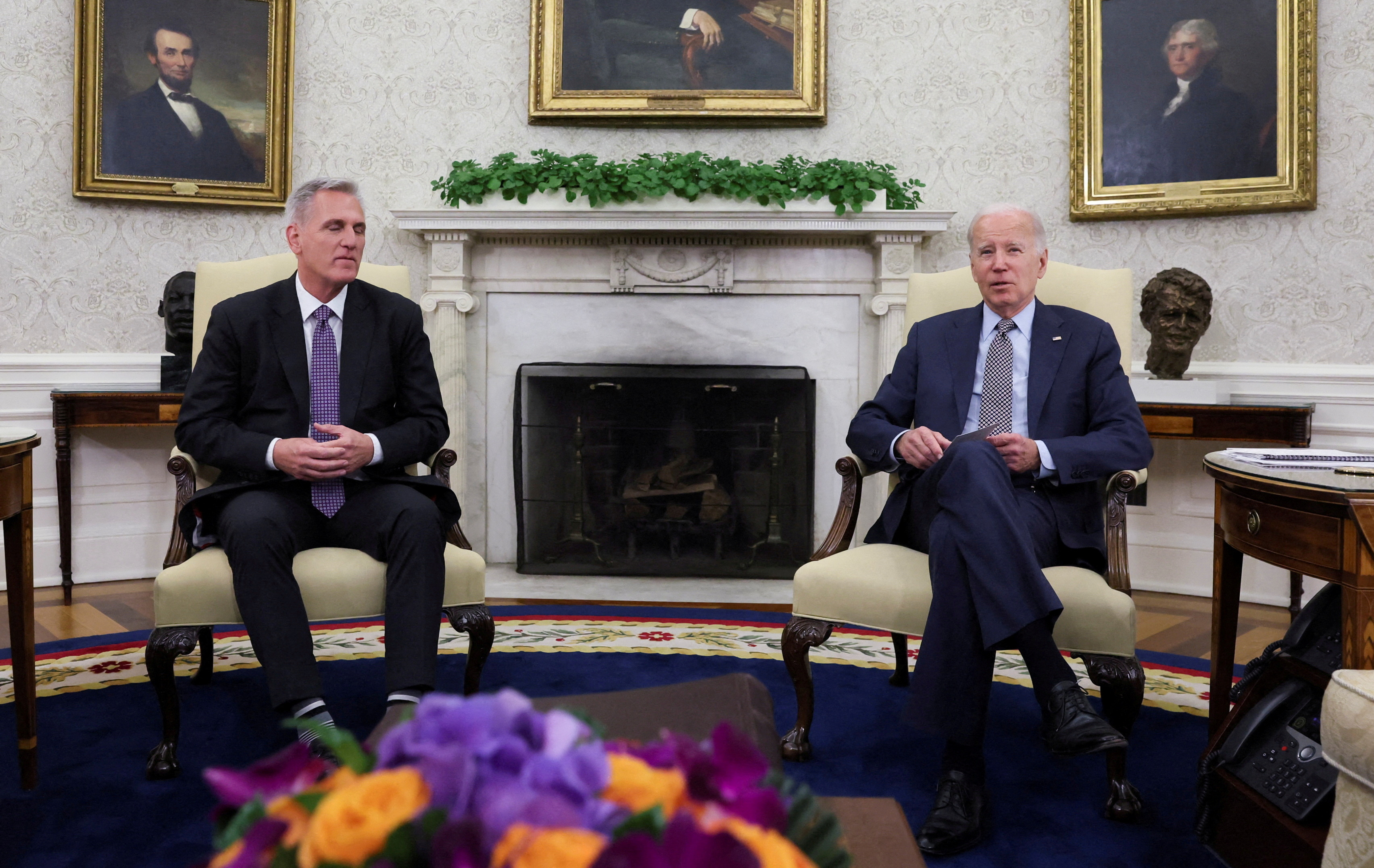U.S. House of Representatives Speaker Kevin McCarthy praised the debt ceiling agreement he negotiated with Democratic President Joe Biden on Sunday, but a prominent House conservative warned that McCarthy has “credibility issues” that may lead some Republicans to seek his removal as the top Republican in Congress.
Representative Ken Buck, a member of the far-right House Freedom Caucus, said the agreement fell short of the steeper expenditure cutbacks pledged by McCarthy when he sought for speaker in January.
The debt ceiling agreement freezes fiscal 2024 expenditure at this year’s levels while allowing for a 1% increase in fiscal 2025. According to the nonpartisan Congressional Budget Office, the agreement will reduce deficits by nearly $1.5 trillion over a decade compared to the current-law baseline prediction.
House Republicans passed a resolution in late April requiring $4.8 trillion in deficit reduction over ten years in exchange for raising the debt ceiling, dragging Biden into negotiations that resulted in the deal’s Senate acceptance on Thursday.
When asked if the Freedom Caucus would seek a vote to remove McCarthy in response to the agreement, Buck told CNN’s State of the Union, “I’m not sure if the motion to vacate is going to happen right away.” I do know that Speaker McCarthy has credibility issues.”
McCarthy agreed to rule changes that allow only one member to initiate a vote to unseat him in order to win the speakership in a tumultuous election process in January, rendering him uniquely vulnerable to extreme Republican conservatives.

Other Republicans came to McCarthy’s defense a day after Biden signed legislation suspending the debt ceiling until January 1, 2025, preventing a calamitous U.S. payments default feared on Monday.
“Speaker McCarthy’s position is absolutely safe,” Louisiana Republican Garret Graves, who helped negotiate the debt ceiling compromise, told CBS’ “Face the Nation.”
McCarthy told Fox News Channel’s “Sunday Morning Futures” that the agreement represents a rare drop in non-defense discretionary expenditure, prevents more IRS agents from being hired next year, and raises funding for defense and veterans.
“It’s not perfect, but it’s a start,” he said of the expenditure cuts. “Now it’s time to finish the job.”
Buck claimed McCarthy promised Republicans that he would lower spending levels to fiscal 2022 levels rather than the higher 2023 levels agreed to in the pact, resulting in a loss for the party.
The agreement was accepted by 149 House Republicans (a large party majority) and 165 Democrats. Forty-six Democrats, largely progressives, spoke out against the agreement, claiming that it imposed strict job requirements on poor families who receive food or monetary help, as well as others who suffer employment barriers.
Senator Mike Lee, a conservative Republican from Utah, also criticized the agreement, saying it would likely allow the United States’ debt to rise by $4 trillion by the beginning of 2025, telling Fox News Channel that Republicans and Democrats conspired to “fund as much of everything as they possibly can without economizing.”
Buck believes that much will depend on McCarthy’s conduct in future budget negotiations and whether he will require Democratic votes to pass legislation, like he did with the debt ceiling.


